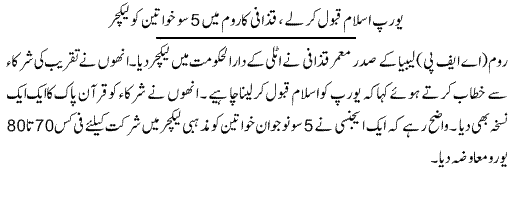By Jennifer S. Bryson
"Burn a Quran Day" is how a church in Florida is preparing to mark the ninth anniversary of 9/11. So far the Christian response to this in America has been nearly dead silence.
The National Association of Evangelicals (NAE) has issued a press release opposing Burn a Quran Day. This is good, but it is basically just a statement to assure non-Evangelical Christians that Terry Jones does not represent authentic Evangelical Christianity.
More direct are efforts by John Rankin, an Evangelical and President of the Theological Education Institute, to reach out Pastor Terry Jones in person. In addition, Rankin has initiated the "Yes to the Bible, No to the Burning of the Qur'an" collective affirmation. So far, however, John Rankin seems to be a voice in the wilderness on this.
Since 9/11 many American Christians have been asking why Muslims who oppose Islamist radicalism don't do more to counter it. Today I suspect more than a few Muslims are looking at Christians in America wondering why Christians don't try to dissuade the Dove World Outreach Center in Florida, led by Pastor Terry Jones, from hosting Burn a Quran Day.
What is the responsibility of religious believers in a given faith to engage fanatics advocating ideologies of hate while claiming to act in the name of this faith?
Quran burning does not equate with murdering thousands in terrorism. However, these are similar in being ideological expressions of hatred which identify themselves with Abrahamic faiths better known for their emphasis on God's mercy toward all humans.
Both are independent movements evoking the name of far larger, broader religions. The Dove World Outreach Center is an independent church. Osama bin Laden's Al-Qaeda is an independent movement. Just as millions of Christians peacefully attend churches with no affiliation with the Dove World Outreach Center, millions of peaceful Muslims have no affiliation with al-Qaeda and associated movements.
Among Muslims there are emerging efforts beyond press releases to engage Islamist fanatics and Muslims, especially young Muslims, at risk of radicalization. Examples include the Quilliam Foundation, a Muslim counter-radicalization think-tank in the U.K., and the videoBelievers Beware: Injustice Cannot Defeat Injustice, released this summer by the Muslim Public Affairs Council based in Washington, DC, featuring Muslim leaders speaking Muslim-to-Muslim against religious fanaticism.
This video is not a press release to assure non-Muslims that al-Qaeda does not represent authentic Islam. Rather, the video targets fellow Muslims.
The target audiences for countering Burn a Quran Day and Islamist fanaticism need to be, precisely, co-religionists, and in particular the enthusiasts of hatred and violence.
We need to reach inside our faiths across the lines of specific religious movements and denominations to engage those who promote and even act on hatred in the name of faith.
In the Believers Beware video, Imam Zaid Shakir of the Zaytuna Institute in California observes, with a passion emphasized in his repetition, that as for the "advocates of extremism...advocates of indiscriminate violence...advocates of killing civilians, where are they successful? Where are they successful? You just see one mess after another, one mess after another. And it is time for us to start cleaning up those messes..."
There is a mess brewing inside Christendom. Some American Christians might be thinking, "Terry Jones and his church - ahem, his "church" - have nothing to do with me because I am Catholic/Methodist/fill-in-the-blank." And yet the only thing a flood victim in Pakistan, likely Muslim, is probably going to hear about this story is, 'American Christians put their energy and resources into Quran burning, not into helping us in our hour of dire need.'
Moreover, if American Christians don't try to reach out to Terry Jones, then who will? Press releases will not be enough.
We need intra-faith dialogue. Those of us inside of a given faith may be most likely to have the credibility, or at least understand the dispositions of the heart and the substantive arguments, which can counter doctrinal fanaticism.
American Muslims and Christians are people with a publicly professed interest in serving our Creator. "Cleaning up those messes," inside our own homes, may be a great way to start doing just that.
http://www.jenniferbryson.net/ is Director of the Islam and Civil Society Project at the Witherspoon Institute in Princeton, NJ.
(Washington Post August 27, 2010)


